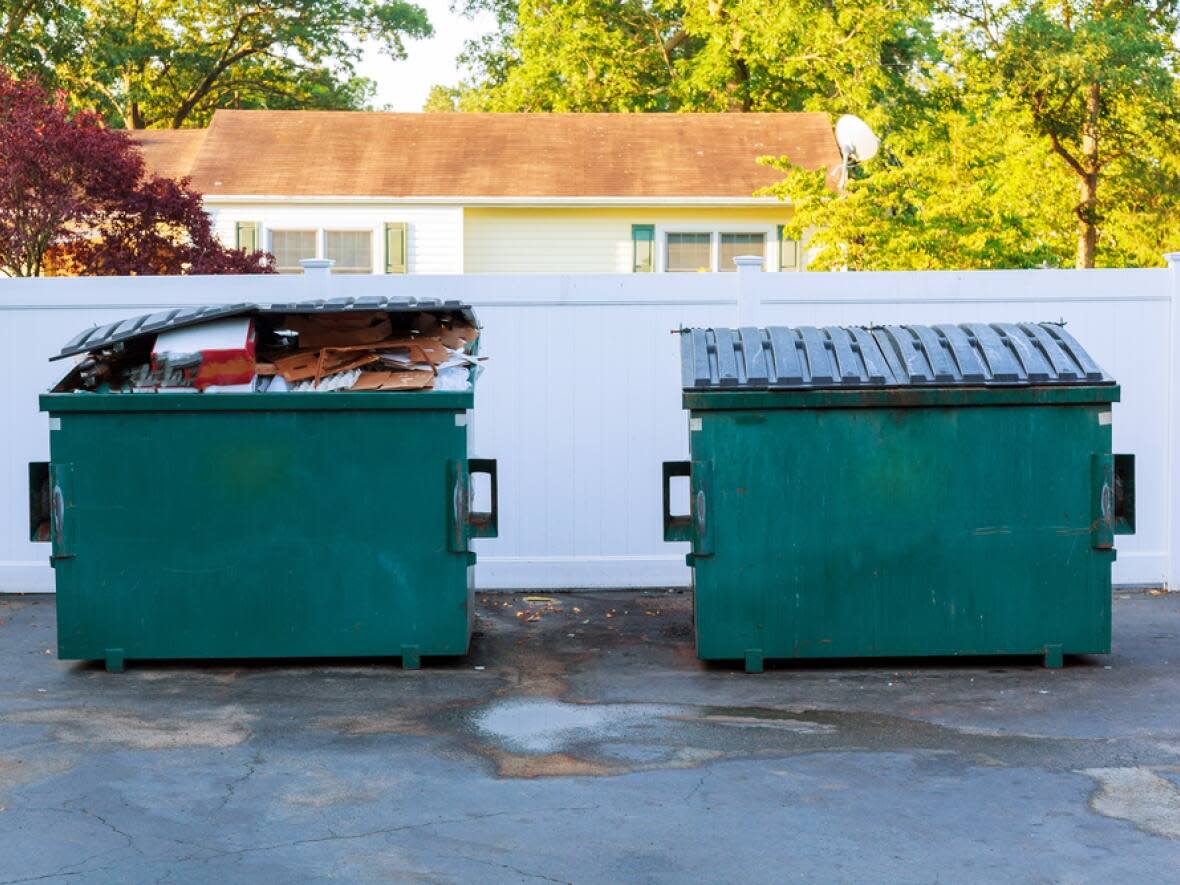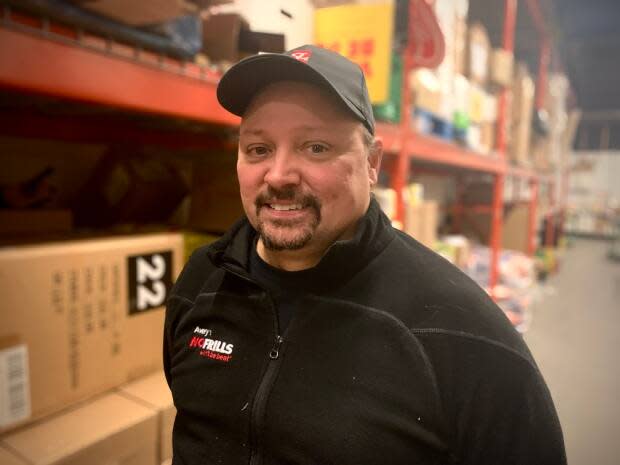France made it illegal to throw away unsold food. As hunger grows, could N.L. do the same?

A Marystown community centre that serves more than 200 low-income households has spent the last few months scrambling to shore up food supplies in the neighbourhood.
Now they're getting help from a local grocer, who's donating food the store can no longer sell — a gesture some believe should be mandatory.
"We're getting phone calls from people on a daily basis who are hungry," said Darrell Jackman, manager of the Smallwood Crescent Community Centre. "They can't afford groceries at the grocery store."
One recent client, Jackman recalls, was surviving on a dwindling box of chicken nuggets when he approached Jackman for help.
"We've never seen demand like this for us.… Meal programming and food security programs has turned into one of our top things that we do every day," said Jackman.
"The need just continues to grow and grow and grow."

The neighbourhood hub, surrounded by Newfoundland and Labrador Housing units, could be considered a microcosm of the province as a whole. As prices climb, the most vulnerable populations are turning to charity in ever-greater numbers to avoid going hungry.
Food bank usage has gone up 27 per cent across the province in the past year, according to Food Banks Canada, and food banks say they're struggling to keep up with demand as donations dry up.
As a result, the community centre is taking on a role it never used to play: a food distributor for those in the neighbourhood.
People are "phoning in, wondering what the next meal is going to be," Jackman said.
"I think people are struggling. And you know, unfortunately some people are hungry, and they're waiting to receive this meal to help them get through the week."
Local grocer pitching in
Joe Avery, who owns the No Frills grocery store in town, says he was tapped by head office to partner with Second Harvest, a charity that connects donors to food banks.
He said tossing out edible goods — about $1,600 worth every couple of weeks — had always left him uneasy.
"I was just distraught," Avery said. "It's just hard to see it going into the garbage chute where I knew there was people in the community that could actually use it."
Avery, as a retailer, has noticed a striking shift in buying patterns in recent months as prices shoot upward.
"You're seeing a lot of people buying a lot [more] processed foods, which is a lot less costly than your normal fruits and vegetables," he said.
"It's really sad to see that trend.… It's good that this program will help with that a little bit."

Andrew Williams, who represents Second Harvest in Newfoundland and Labrador, says over 9,000 kilograms of grocery waste has been rescued in Marystown alone in the last two years.
"This is food that was unsellable, and would otherwise have gone to landfill, but was rescued and put on the plates of Newfoundlanders and Labradorians," Williams said in an email.
About 125 businesses across the province have signed on to the program. But on a national level, over half of the food produced each year still goes to landfills, he said.
"This is still just scratching the surface," said Williams. "There is still a lot of food that is being lost or wasted."
For now, charities rely on large chains choosing to donate. But in France, legislation passed in 2016 bans grocers from sending any food to the landfill — effectively forcing them to donate it.
The Department of Social Development wouldn't say whether it was considering mandating food waste diversion, but said in a statement, "Research is currently underway regarding … potential government actions related to unnecessary food wastage."
But Avery says a law like the one in France is already on its way, as large corporate grocers have made an about-face on donation programs in the last three years.
"I do think we're going in that direction," he said.
Single mother relied on centre's meals
Nicole Howe and her two children have availed of the community centre's hot meals since she moved to Marystown from Nova Scotia recently.
She lost her child tax benefits during the move, and said she relied on the centre to keep her kids fed during those rocky first weeks.
"It's not just hotdogs or hamburgers or soup," Howe said. "It's meatloaf and it's lasagna and spaghetti and Jiggs' dinner and cold plates."

Jackman will be using some of the salvaged grocery store food to make the centre's hot meals. Other food, like a recent shipment of crackers from Avery, he'll store as emergency pantry staples to distribute among visitors in need.
"With the amount of people that are hungry right now and struggling with food, certainly the last thing we need to be doing is throwing food away," he said.
Howe agrees.
"It's food that could be going to so many different places," Howe says.
"I think that the government should make it illegal to throw out food, as long as it's not going to make anybody sick."

 Yahoo Movies
Yahoo Movies 
